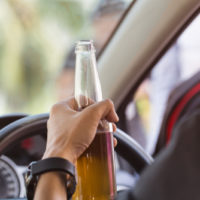Winning Money in Alcohol-Related Crashes

Despite tougher laws and other aspects of the decades-long DUI crackdown, alcohol still accounts for about a third of the fatal car crashes in Florida. Alcohol-related crashes are among the most violent vehicle collisions. These wrecks often cause spine injuries, head injuries, and other catastrophic wounds.
Given the serious nature of the damages, and the tortfeasor’s (negligent driver’s) clear fault, a Port St. Lucie personal injury attorney may be able to obtain substantial compensation in these cases. This compensation usually includes money for economic losses, such as medical bills, and noneconomic losses, such as pain and suffering. Additional punitive damages may be available as well, in high BAC and some other extreme cases.
First Party Liability in St. Lucie County
Alcohol inhibits motor skills and impairs judgment. So, victim/plaintiffs may use both direct and circumstantial evidence to establish negligence.
Direct evidence includes an arrest for DUI. In Florida, tortfeasors are typically liable for damages as a matter of law if:
- They violate penal safety laws, like the DUI law, and
- That violation substantially causes injury.
This doctrine, which is called negligence per se, applies whether or not the tortfeasor is convicted of DUI. Even if the tortfeasor “beats” the DUI on a technicality, the tortfeasor is still liable for car crash damages in civil court. Unlike ordinary negligence claims, negligence per se claims do not require proof of a legal duty or a breach of that duty.
Florida drivers are intoxicated if they have a .08 BAC or above. However, driving impairment usually begins with the first drink. So, many drivers are not legally intoxicated, but they are dangerously impaired.
In these situations, victim/plaintiffs may use circumstantial evidence to establish impairment, since direct evidence is probably unavailable. Circumstantial evidence on this point includes:
- Bloodshot eyes,
- Odor of alcohol,
- Unsteady balance, and
- Slurred speech.
In circumstantial evidence claims, victim/plaintiffs must establish duty and breach. Most drivers have a duty of reasonable care, and alcohol consumption clearly violates that duty.
Third Party Liability in Florida
The tortfeasor may not be the only person who is liable for alcohol-related car crash damages. Many times, the bar, grocery store, restaurant, or another commercial provider might also be liable for damages. Third party liability theories like this one are especially important in catastrophic injury cases. Since Florida has such a low auto insurance minimum requirement, many drivers do not have enough insurance coverage to pay fair compensation in these cases.
Many states have scaled back their dram shop laws in recent years, or even rescinded them altogether. But Florida’s dram shop law still applies if the customer was:
- A minor, or
- A “habitually addicted” adult.
Victim/plaintiffs may use some of the same circumstantial evidence mentioned above to establish habitual addiction. Other evidence on this point includes the tortfeasor’s statements to store employees and prior credit card receipts.
Partner with a Dedicated Lawyer
Alcohol-related crashes usually cause serious injuries. For a free consultation with an experienced Port St. Lucie car accident attorney, contact Eighmie Law Firm, P.A. We do not charge upfront legal fees in negligence cases.
Resource:
cdc.gov/motorvehiclesafety/impaired_driving/impaired-drv_factsheet.html
